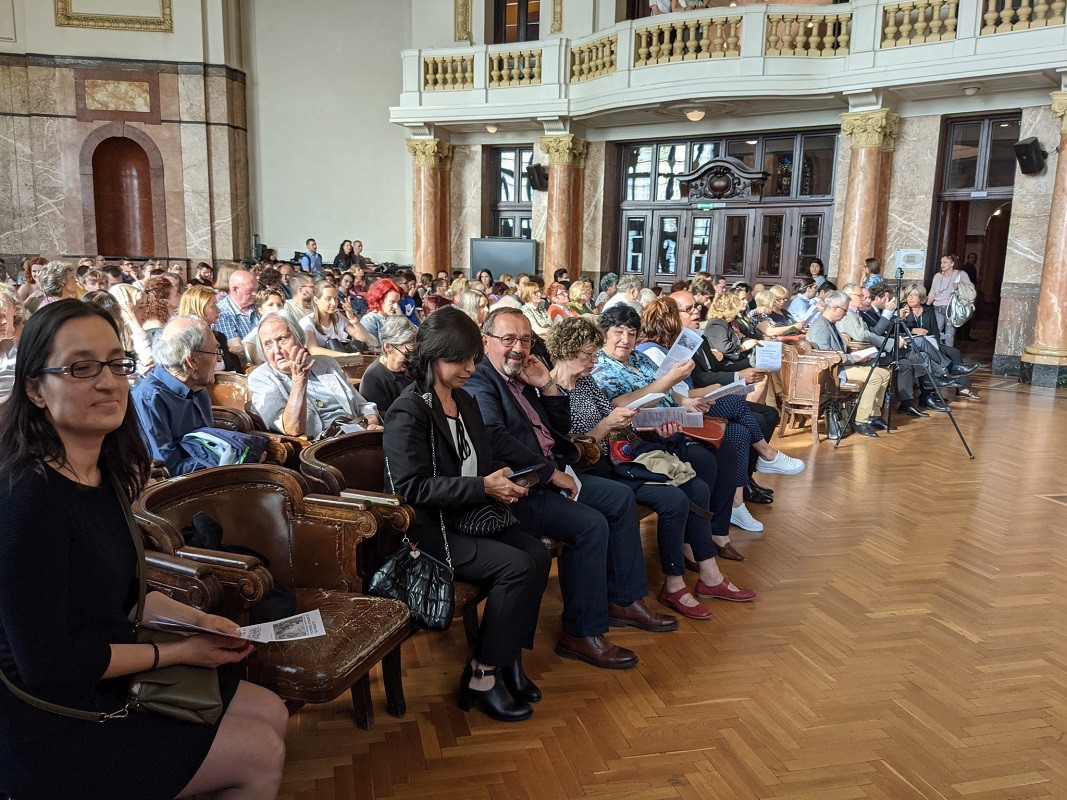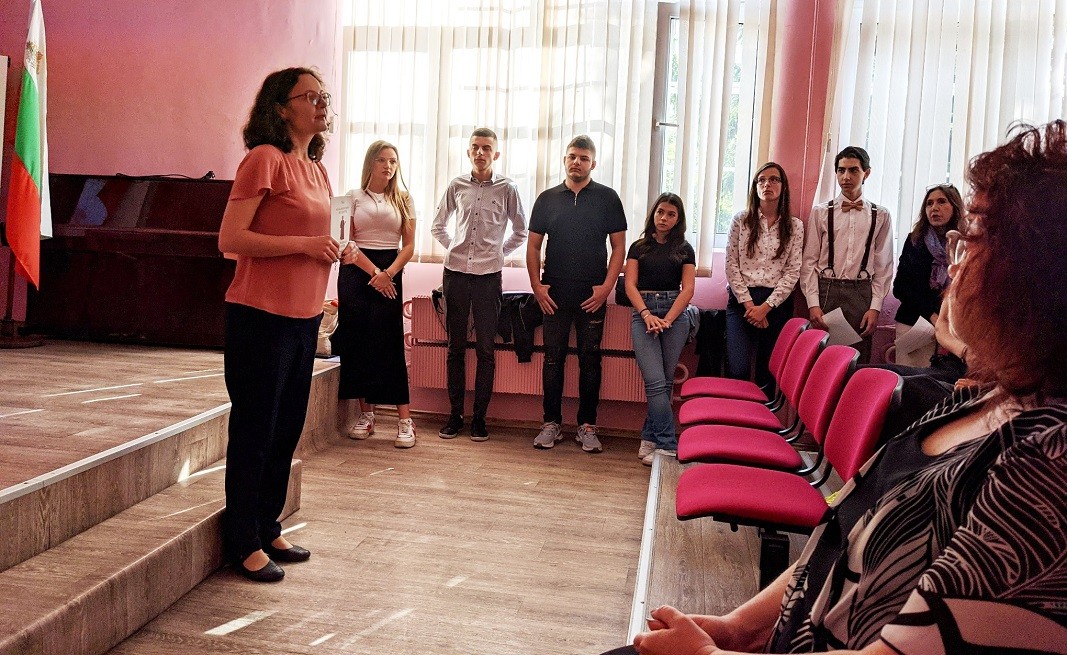Italian language continues to enjoy great popularity in Bulgaria. Many young Bulgarians love studying the language of Boccaccio and Dante Alighieri and enjoy Italian music and art.
In Bulgaria, Italian language is taught in four schools in Sofia, as well as in St. Kliment Ohridski University and New Bulgarian University. Italian language courses are organized by the Italian Cultural Institute in Bulgaria, as well as by many private schools.
While learning Italian pupils and university students also learn a lot about architecture, art, design, fashion, science and innovation. The main reason for this are the great achievements of Italy, says Radeya Gesheva, assistant professor in Italian Studies, part of the Romance Studies Department at Sofia University "St. Kliment Ohridski”. At the end of May, the 80th anniversary of Italian Studies in the university was marked with a solemn celebration:

"It is a great pleasure for us to promote the Italian language; this is our mission," Radeya Gesheva says. “We enjoy an incredible cooperation with the Italian Cultural Institute in Sofia and the Embassy of the Republic of Italy in Bulgaria. This is a bridge between cultures, through which we discover how close Bulgarian and Italian people are. We are close in our ways of interaction, as well as in terms of culture and our perception of art in general. I personally have many Italian friends who live in Bulgaria, as well as those who often come to visit our country. They are greatly impressed by Bulgarian culture, traditions and history. For them, everything is new because our country had long remained out of the attention of Italians as a tourist destination.”

According to Radeya Gesheva, the biggest similarity between Bulgarians and Italians is that they invest passion and emotion in everything they do.
"Lecturers and teachers strive to pass the attitude towards language and culture to our students. Teaching is a great responsibility and Italian Studies have a long tradition in Bulgaria, as well as continuity and connection between teachers and students. I have been teaching for 10 years and now many of my professors are also my colleagues. In addition to the love for the Italian language, they have given me their example of high professionalism and desire for improvement. These are the qualities that I want to pass on to my students," Radeya Gesheva says in conclusion.
English: Alexander Markov
Photos: BNR-archive, Facebook/filologiaitalianaTopics related to renewable resources and natural disasters united students from the Bulgarian Sunday School "Assen and Iliya Peykovi" in Rome, the First English Language School in Sofia and the Greve High School near Copenhagen. The project aims to..
More than 50 wine producers from Bulgaria and Greece are going to take part in the contest for best wine with which the two-fay wine festival will kick off in Delchevo village near Gotse Delchev. Expert oenologists will evaluate a total of 134..
The day of St. Tryphon is marked on 1 February old style (14 February new style), and i n the folklore calendar it spans 3 days, known as Trifontsi – 1,2 and 3 February. Known in popular tradition as Trifon Zarezan (Trifon the pruner), it is a..
21 February is International Mother Language Day, first proclaimed as such by UNESCO and later adopted by the UN General Assembly. The right to..
Prayer served by His Holiness Bulgarian Patriarch Daniil on February 22, marks the beginning of the celebrations for the consecration of..
"Thracians, Wine and Culture" is the theme of a seminar at the archaeological complex "Valley of the Thracian Kings" near Kazanlak , which brings..

+359 2 9336 661
